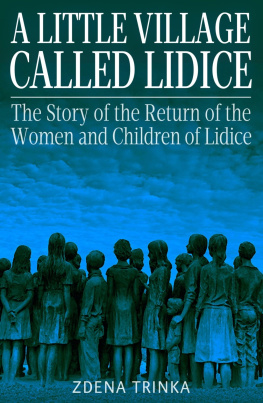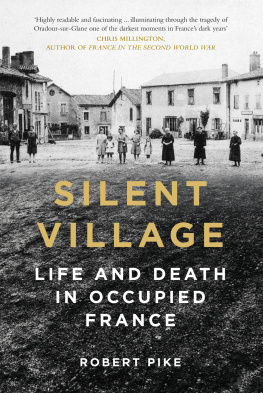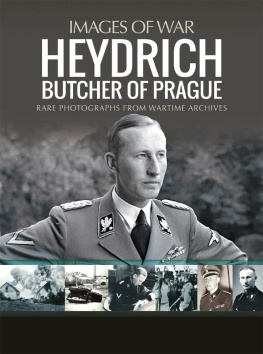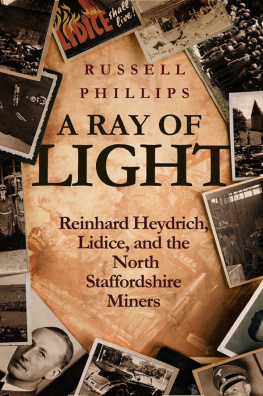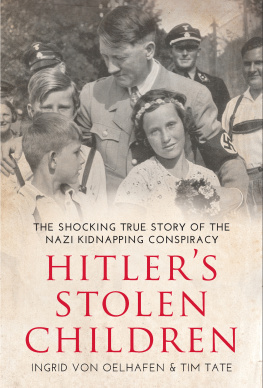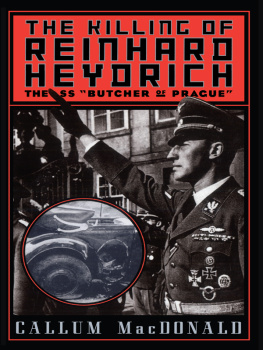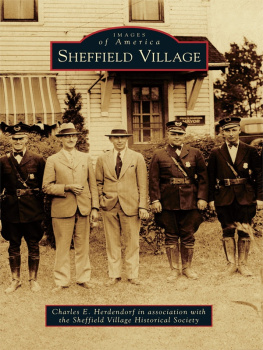

EUMENES Publishing 2019, all rights reserved. No part of this publication may be reproduced, stored in a retrieval system or transmitted by any means, electrical, mechanical or otherwise without the written permission of the copyright holder.
Publishers Note
Although in most cases we have retained the Authors original spelling and grammar to authentically reproduce the work of the Author and the original intent of such material, some additional notes and clarifications have been added for the modern readers benefit.
We have also made every effort to include all maps and illustrations of the original edition the limitations of formatting do not allow of including larger maps, we will upload as many of these maps as possible.
A LITTLE VILLAGE CALLED LIDICE
Story of the Return of the Women and Children of Lidice
By
ZDENA TRINKA
With a Foreword by JOSEPH AUSLANDER, Noted Poet
A Little Village Called Lidice was originally published in 1947 by International Book Publishers, Lidgerwood, North Dakota.
Other Books by the Author: Jenik and Marenka, Medora, Home Sweet Home, Ave Maria
* * *
LIDICE
On June 10 th , 1942, the German Government announced the murder of a word LIDICE. That little village in Czechoslovakia not only was destroyed but its men were murdered. Its women and children were scattered, imprisoned and killed.
The name of Lidice was to be erased from time, blotted out of history, forever forgotten.
Insteadthe name of LIDICE becomes an everlasting reminder to us that Nazi force could not destroy either the love of human freedom or the courage to maintain it.
FRANKLIN D. ROOSEVELT
* * *
To
The Memory of
THE LITTLE VILLAGE OF LIDICE
and to a
SORELY-TRIED CZECH PEOPLE
Who Were Nailed to the Cross at Munich
TABLE OF CONTENTS
Contents
PREFACE
This is the story of the return of Marie (Mah-ree-yeh) and the women and children of Lidice. Of the Czech people in general. It is their story. Uncolored by any addition, any attempt on part of the writer to interpose something that is apart from their thinking. Free of any attempt at editing what goes on in their minds.
In a free worldmen and women conscious of their human dignity, may speak freely, unafraid. The Atlantic Charter with its four freedoms, for which men laid down their lives in the just-ended World War II, gives them this right. This a prerogative of free men and women the world over.
This then is the story of what I saw and learned as a guest in their land, and what transpired later. A guest at a garden party on proud Hradcany as well as in the homes of the people. Speaking their language, I lived with them something of the tense days before Munich. I stood with them on the street corners of their towns and cities, listening to the voice of President Eduard Benes coming in radio broadcasts over the loud speakers of the land asking them as they loved their country, to do nothing that would give Hitler Germany an excuse for moving in. To hold on to their nerves...
I saw them with the tears in their eyes in the days when they believed themselves betrayed by the great powers their twenty years of life as a Republic twenty years of back-bending labor of such self-denial to give to others, as few nations know their struggle and pride in furthering the principles of democracy in keeping the Flag of Freedom flying in Central Europe counted as nothing!
I saw them with the look in their eyes of men and women stood up to a wall when their country was being handed over their heads to the enemy without anyone asking their consent; without a single Czech being present to the sellout! At the Munich meeting where the sellout was consummated, the Czech Ambassador to Germany, Vojtech Mastny, was left cooling his heels outside the door behind which Germany and three great powers of Europe were deciding his countrys fate. The door opened only to hand him the ready-made ultimatum, then was closed in his face again.
The world of 1938 was treated to the spectacle of the corrupt Tory-Fascist ruling faction of a great European country conniving with the enemy and when the enemy turned on them trying to save themselves behind the skirts of a small country that trusted them and to whom they were indebted for many a service (like that of averting war in the offing over the Persian oil wells, and arranging matters on a basis of mutual satisfaction to both that country and Persia - now Iran).
It was cheaper to hand over the little country and its people than to hand back former German African colonies as demanded by Germany at the Berchtesgaden meeting as an alternative. Doubly cheap because it didnt cost them anything.
Their colonial possessions safe; enhanced by the German promise that the secret clause of the Western Pact of 1934 between that country and Germany would soon be walking off its blueprint, thus insuring them their pots of gold and landed estates until the end of time and eternity; and believing their homes and children safe too the Mighty went to sleep with a Peace for our time. Their sleep untroubled by the cries of terror of Czech children...the stark despair of Czech men and women...that reverberated out of a German shambles of beatings, torture, executions...as the first 60,000 of the flower of the nation were being dragged off into German Concentration Camps.
This was the face of Europe in 1938, that made World War II and a Lidice possible and that even as this is being written is setting the tempo for World War III behind the curtain of power politics.
ZDENA TRINKA
FOREWORD
By JOSEPH AUSLANDER, Noted Poet
On May 27,1942, in faraway Prague, two Czech patriots shot and fatally wounded Reinhardt Heydrich Heydrich the Hangman Deputy Reich Protector of Czechia-Moravia and Deputy Gestapo Chief, who had been sent from Berlin to keep the Czechs in line with whip and bullet and rope, but especially with rope, whence came his nickname, the Hangman.
Heydrich died on June 4. A reward of two hundred and twenty-five thousand dollars was posted for the capture of the patriots. They were never captured.
The Hangmans state funeral, on June 7, was an occasion of barbaric splendor. No royal personage has been followed to his grave by a more spectacular cortege. And in that dreadful funeral procession marched the ghosts of two thousand innocent people of Prague, murdered that they might escort the Hangman to his final doom. These murdered folk included judges, architects, physicians, lawyers, artists, university professors, students and just plain people.
But the two thousand were not enough. Some memorial to shock the world, grown almost shock-proof through the accumulation of horror upon horror, must be provided for the Hangman. So Lidice was chosen for that infamous honor.
The excuse, of course, was that the two Czech patriots who had shot the Hangman were concealed there. But we know now that if the invader had not made an example of Lidice, it would have been some other village some similar peaceful spot on which to visit vengeance. For by now there have been a thousand Lidices in France, in Greece, in Norway, in all the ravaged lands but this Lidice in Czechia is the Mother of all Lidices, for here the furious degradation of the invader first found consummation.
There is an enormous patience and courtesy in the earth. The grass eternally forgives; the grass has grown over the graves of the martyrs. But the wounded heart cannot ever quite heal over. Out of the wounded heart, slow drop by drop, has grown the dream and the plant that is the resurrection of Lidice.
Next page
